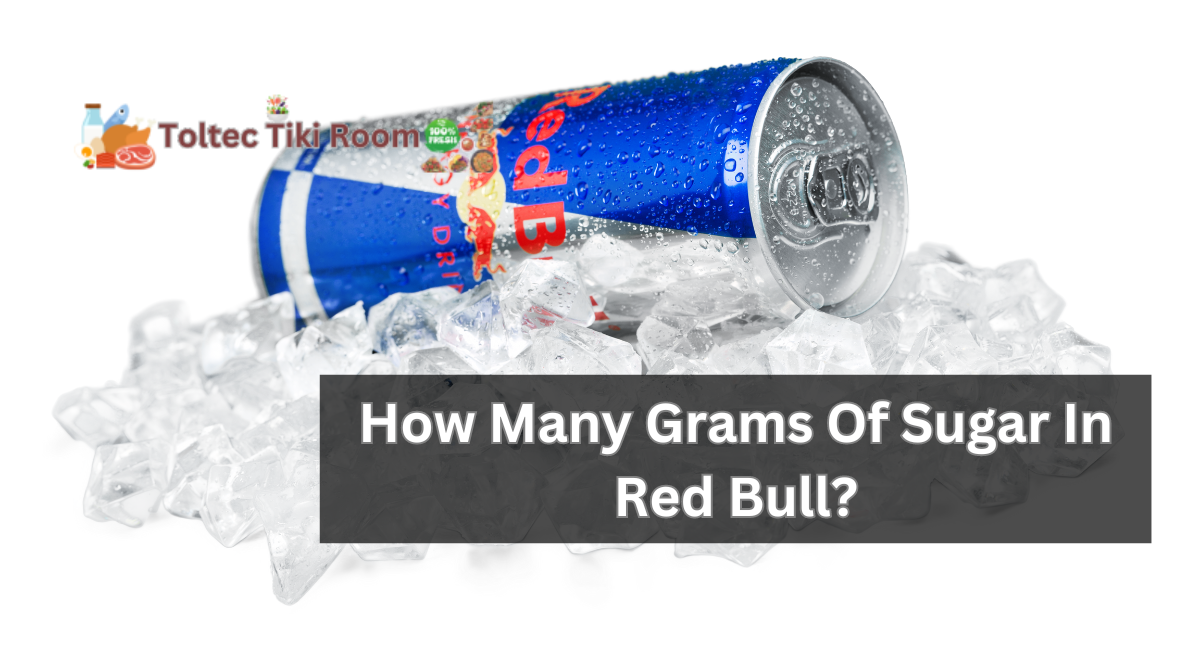The revitalizing effects of Red Bull, a popular energy drink, are frequently sought after. However, a great number of consumers are concerned about its sugar content. In this article, we will discuss the precise amount of sugar in Red Bull and its potential health effects.
Red Bull Energy Drink Ingredients
The unique formula of Red Bull Energy Drink contains high-quality components.
1. Red Bull Contains Caffeine
Ancient civilizations utilized caffeine extensively. It was traditionally taken from natural sources like cacao beans, cola nuts, tea, and coffee, and it was respected for its ability to wake people up. Caffeine is naturally present in over 60 plant species and many foods, including coffee, tea, and chocolate.
Caffeine from Red Bull Energy Drink is processed the same way by the body as caffeine from natural sources.
A stimulating effect on cognitive processes is one of caffeine’s primary sites of action in the human body. Each 8.4-ounce can of Red Bull Energy Drink contains 80 milligrams of caffeine.
2. B-Group Vitamins
Red Bull contains B6, B12, Niacin, and Pantothenic acid.
There are two categories of vitamins: soluble in fat and soluble in water. The micronutrients in Red Bull are water-soluble. The body does not store water-soluble vitamins as much as fat-soluble vitamins. They circulate instead through the blood plasma. Unutilized substances are eliminated. Red Bull contains the water-soluble B-complex vitamins niacin (B3), pantothenic acid (B5), vitamin B6, and vitamin B12.
3. Sugars
Sugar is used in the production of Red Bull Energy Drink.
Sugars are well-known carbs that can be found in many foods and drinks, from fruits and fruit sauces to energy drinks and other drinks. Carbohydrates are essential nutrients that are consumed daily, and your body processes these sugars in the same manner, whether they are found in fruits or Red Bull Energy Drink.
Each 8.4-ounce can of Red Bull Energy Drink contains 27 grams of sugar. This total is comparable to the amount of sugar in an equivalent volume of apple juice. Red Bull is also sugar-free: Red Bull Sugarless and Red Bull Zero.
4. Taurine
Taurine is an amino acid that your body makes naturally and that you can find in most foods.
Muscle, brain, heart, and blood all contain taurine in high concentrations. About 70 grams of taurine are distributed throughout the body of a 154-pound individual. To put it another way, a 154-pound person’s body naturally has 70 times more taurine than a can of Red Bull Energy Drink. In addition to scallops, fish, poultry, and most infant formulas, numerous foods contain taurine.
5. Water
Water is a key ingredient in Red Bull, and our production facilities ensure that the water source meets stringent quality standards.
Impacts On Health
There are both good and bad effects on health from Red Bull’s sugar content, depending on how it is drunk and other factors. Here is a summary of its possible consequences:
Positive Effects
Here are positive effects :
Quick Energy: Red Bull’s sugar provides a quick energy source, making it an effective choice for a quick energy boost.
Improved Alertness: The energy provided by sucrose can increase alertness and temporarily diminish feelings of fatigue.
Negative Effects
Here are negative effects :
Calorie Intake: Red Bull contains sugar, which contributes to its calorie content. Excessive calorie consumption can result in weight gain if not balanced by physical activity.
Blood Sugar Spikes: If you eat a lot of sugar in a short amount of time, your blood sugar levels may rise quickly and then drop, which can make you tired and irritable.
Dental Health: High sugar intake can contribute to dental problems, including cavities and tooth degeneration.
Weight Gain: Regular consumption of sugary beverages like Red Bull, particularly when not balanced with physical activity, can contribute to weight gain, leading to various health problems.
Red Bull contains approximately 27 grams of sugar per 8.4-ounce can, making it a fast-acting energy source. Red Bull should be consumed in moderation due to its high sugar and calorie content, even though it can provide a temporary energy surge. Sugar-Free Red Bull offers an alternative with no sugar and fewer calories while retaining the same energizing effects for those who are concerned about their sugar intake.
Thanks for visiting our site hope you like it ..
